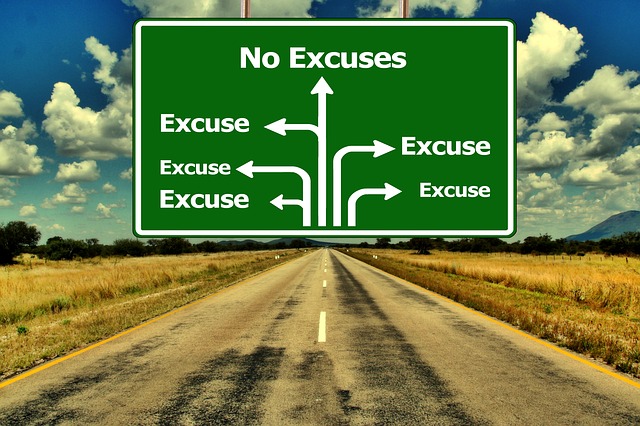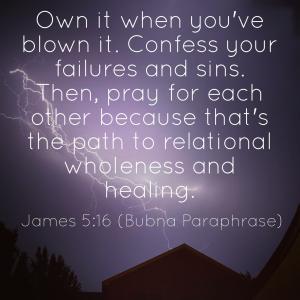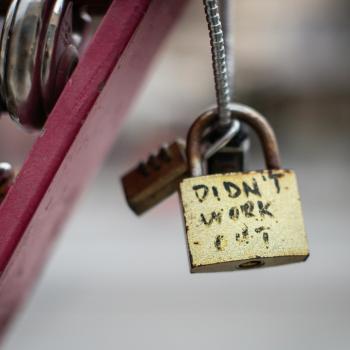
Conflict happens, and no one likes to hear this, but healthy conflict is good in our relationships. When we fight fair, conflict helps us to set appropriate boundaries and express our honest feelings.
What makes conflict challenging is our tendency to stockpile our hurtful experiences rather than openly address them in a helpful and godly manner. People who say little things don’t matter have never tried sleeping with mosquitoes in their room.
I agree with Sarah Osborn, “Healthy conflict does require a confrontation – where parties directly engage in honest conversation over the dispute – but it doesn’t need to be confrontational.”
That said, I want you to think back to your last fight or argument with your spouse, parent, child, or best friend. Most of the time, one of three things caused that altercation.
- An unmet expectation
- An unresolved issue
- Unforgiveness
One or more of the things mentioned above is the root of almost every disappointing and negative relational experience.
Either something wasn’t done that you felt should have been done (i.e., an unmet expectation), something irritated you that resulted in an emotional eruption (i.e., an unresolved issue), or you became harsh and bitter (i.e., due to unforgiveness).

Here’s Some More Good News About Resolving Conflict
There are positive and practical ways to work through your relationship challenges.
First and foremost, learn to talk it out as you walk it out. In other words, don’t stuff, don’t hide, and don’t run from tough relational challenges. Lovingly face them head-on and get professional help if needed.
Unmet expectations, unresolved issues, and unforgiveness have power only when we stop caring, stop communicating, and choose to stay stuck. For the record, doing so always leads to bitterness, and being bitter never makes us better. Never.
I coached a client named Toby, who almost shouted at me, “I am a selfish jerk, and I can’t stand myself anymore!” I knew him, and sadly, he was right. The results of his immaturity made his marriage a mess, and ugly conflict was way too common.
After he calmed down a bit, Toby started to cry and said, “I don’t know what to do. My wife was so right to challenge me about my horrible attitude.”
So, What Can You Do After You’ve Caused Unhealthy Conflict?
I’m going to give you the nine most powerful words you can use to begin the process of repairing a broken relationship.
Ready?
You were right. I was wrong. Please forgive me.
Now, before you shrug this off with a sarcastic “whatever.” Please stop and think about it for a moment.
Do you want to get someone’s full attention when they are mad at or hurt by you? If so, start with the sweetest words most of us love to hear: You were right. We love to be right and especially like it when someone acknowledges our rightness.
Similarly, people will lean into your words when they hear a genuine and humble I was wrong. Nothing endears us to a wounded person more than owning it when we’ve blown it.
Don’t justify, rationalize, or downplay anything; own it and confess, “I blew it.” And avoid the word but at all costs. Don’t say, You were right, and I was wrong, but . . . .” The “b” word does nothing but irritate others and throw your sincerity into question.

TIME writer Angela Haupt recently wrote, “I like to encourage people to really focus on taking responsibility for the parts of the conflict that they’re responsible for. Avoid the urge to phrase it as ‘I’m sorry I did this, but you also did that.’”
Next is the most challenging part of this conflict resolution interaction. Humbly say: Please forgive me.
This part is tricky because it requires a transaction on the part of both parties. You are asking for grace, mercy, and forgiveness. So, the offended person then has a decision to make—to forgive or not to forgive.
This request for forgiveness is far better than saying, “I’m sorry.” The pardon plea shows you are asking to move forward without the baggage that typically comes with failure.
Of course, it’s essential to deal with unresolved causes. Sometimes, the issue is not the issue, meaning that whatever is being focused on might not be the root problem. Without question, you must deal with the core issues to reduce the number of relational weeds that crop up if you don’t get to the heart of the matter.
But the best path to healing and hope is to learn to use this sentence often: You were right. I was wrong. Please forgive me. (Go ahead, practice it out loud; I’ll wait.)
These words are not magical or mystical, but I promise they will change and vastly improve your relationships.
Still Not Convinced This Will Help You Resolve Conflict?
Then try this:
- Write that email or make that call (the one you’ve been avoiding).
- Use these nine words.
- See what God will do.
What’s holding you back? What do you have to lose?
You never need to wait to do the right thing in the right way to make a relationship right again.
You might be thinking, “I didn’t really do anything wrong! This is their problem, not mine.” Perhaps, but please don’t make being right more important than being relational.
It’s better to suck it up and humble yourself than to blow up a relationship.














